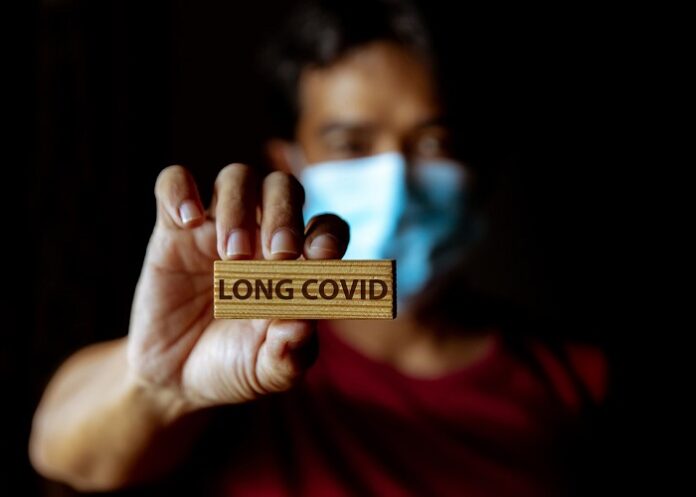Almost four and a half years after the pandemic began, one of the biggest challenges still facing physicians is understanding, diagnosing and treating long Covid, with a recent study of more than 10 000 adults in America bearing this out.
The doctors involved in the research found that more than two dozen commonly available lab tests still couldn’t help diagnose long Covid, leaving them having to rule out other health conditions to confirm whether someone has the condition.
National Institutes of Health (NIH)-backed researchers, writing in Annals of Internal Medicine, said they found no evidence that any of 25 routinely used blood or urine tests provided a reliable measure of prior SARS-CoV-2 infection, or of 12 symptoms that can persist after infection.
The study had tried to size up whether having Covid could lead to changes like inflammation, altered blood counts or the amount of protein in the urine, reports Axios.
But the tests revealed few differences between people with prior infection and those without. And when used just on infected people, they also didn’t show meaningful differences between individuals who developed long Covid and those who did not.
Researchers categorised those with long Covid through a scoring system using such symptoms as brain fog, gastrointestinal problems, dizziness and palpitations.
The quest continues
The challenge remains to find ways to “quickly and accurately diagnose long Covid to ensure people struggling with this disease receive the most appropriate care as soon as possible”, said David Goff of the NIH’s National Heart, Lung and Blood Institute.
“Long Covid symptoms can prevent someone from returning to work or school, and may even make everyday tasks a burden, so the ability for rapid diagnosis is key,” he added.
Johns Hopkins researchers, in an accompanying editorial, wrote: “Clinicians are left to continue doing what we have done in the past: order tests to rule out alternative explanations rather than to diagnose long Covid.”
The study was part of NIH’s RECOVER Initiative, a $1.15bn-plus effort to define and study the long-term effects of the virus.
In June, the National Academies of Sciences, Engineering and Medicine had developed a new definition of long Covid, noting that the lack of a consensus had led to difficulties accessing medical care, scepticism and social stigma.
Study details
Differentiation of Prior SARS-CoV-2 Infection and Postacute Sequelae by Standard Clinical Laboratory Measurements in the RECOVER Cohort
Kristine Erlandson, Linda Geng, Caitlin Selvaggi, Tanayott Thaweethai, et al, on behalf of the RECOVER-Adult Cohort
Published in Annals of Internal Medicine on 13 August 2024
Abstract
Background
There are currently no validated clinical biomarkers of postacute sequelae of SARS-CoV-2 infection (PASC).
Objective
To investigate clinical laboratory markers of SARS-CoV-2 and PASC.
Design
Propensity score–weighted linear regression models were fitted to evaluate differences in mean laboratory measures by prior infection and PASC index (≥12 vs. 0).
Setting
83 enrolling sites.
Participants
RECOVER-Adult cohort participants with or without SARS-CoV-2 infection with a study visit and laboratory measures 6 months after the index date (or at enrolment if >6 months after the index date). Participants were excluded if the 6-month visit occurred within 30 days of reinfection.
Measurements
Participants completed questionnaires and standard clinical laboratory tests.
Results
Among 10 094 participants, 8746 had prior SARS-CoV-2 infection, 1348 were uninfected, 1880 had a PASC index of 12 or higher, and 3351 had a PASC index of zero. After propensity score adjustment, participants with prior infection had a lower mean platelet count (265.9 × 109 cells/L [95% CI, 264.5 to 267.4 × 109 cells/L]) than participants without known prior infection (275.2 × 109 cells/L [CI, 268.5 to 282.0 × 109 cells/L]), as well as higher mean haemoglobin A1c (HbA1c) level (5.58% [CI, 5.56% to 5.60%] vs. 5.46% [CI, 5.40% to 5.51%]) and urinary albumin–creatinine ratio (81.9 mg/g [CI, 67.5 to 96.2 mg/g] vs. 43.0 mg/g [CI, 25.4 to 60.6 mg/g]), although differences were of modest clinical significance. The difference in HbA1c levels was attenuated after participants with pre-existing diabetes were excluded. Among participants with prior infection, no meaningful differences in mean laboratory values were found between those with a PASC index of 12 or higher and those with a PASC index of zero.
Limitation
Whether differences in laboratory markers represent consequences of or risk factors for SARS-CoV-2 infection could not be determined.
Conclusion
Overall, no evidence was found that any of the 25 routine clinical laboratory values assessed in this study could serve as a clinically useful biomarker of PASC.
Axios article – Lab tests couldn't help diagnose long COVID: study (Open access)
See more from MedicalBrief archives:
‘The problem with the National Academies’ long Covid report’: US expert
New long Covid definition proposed by US National Academies

